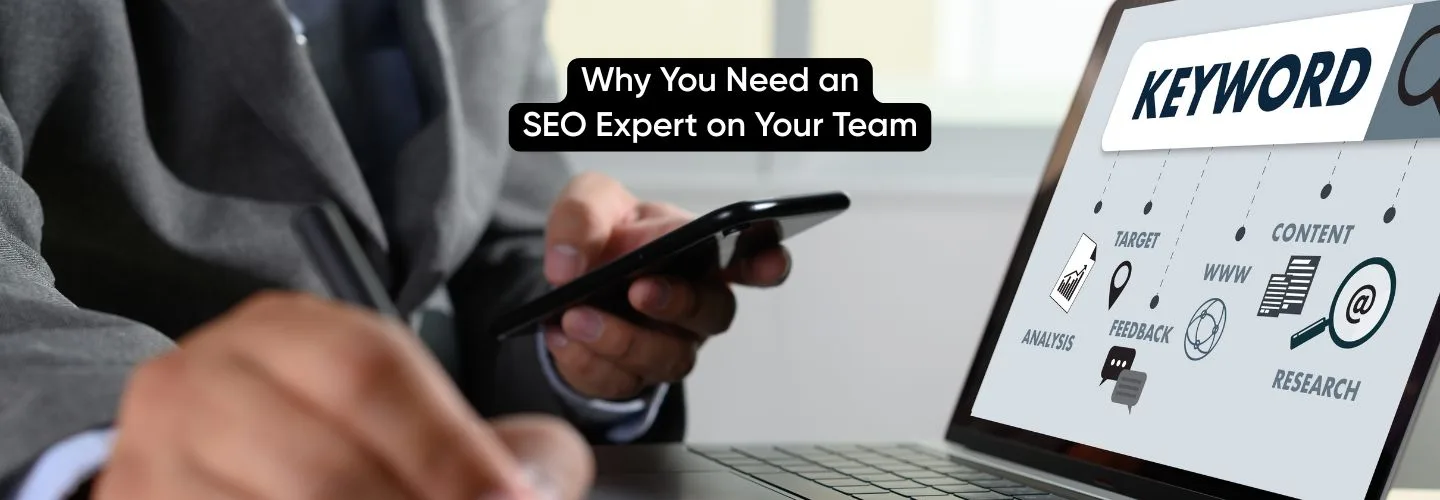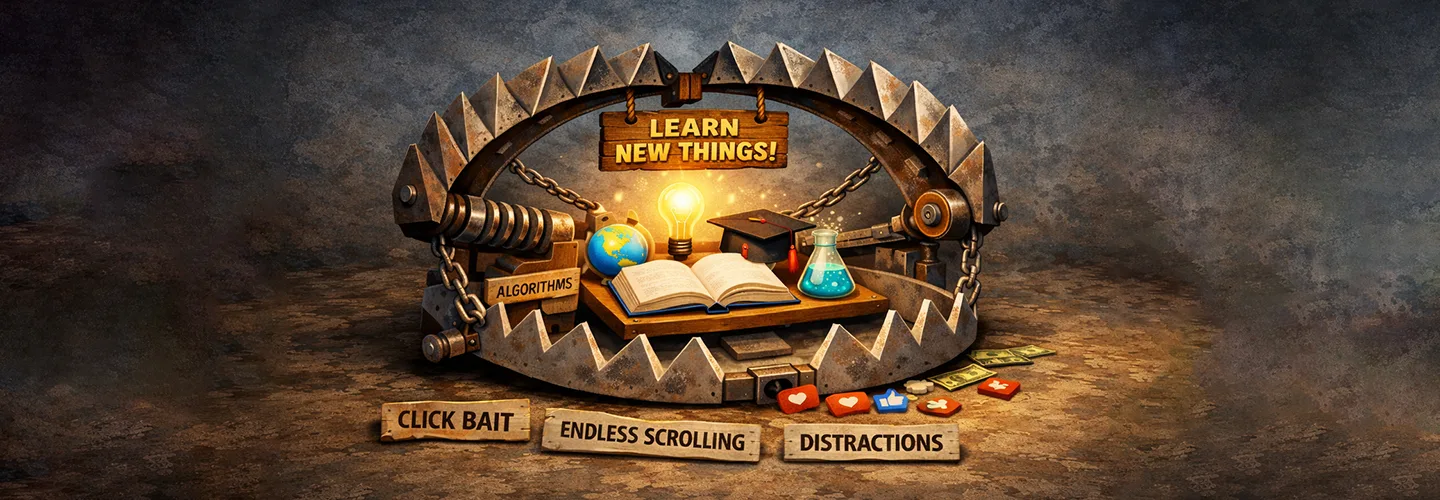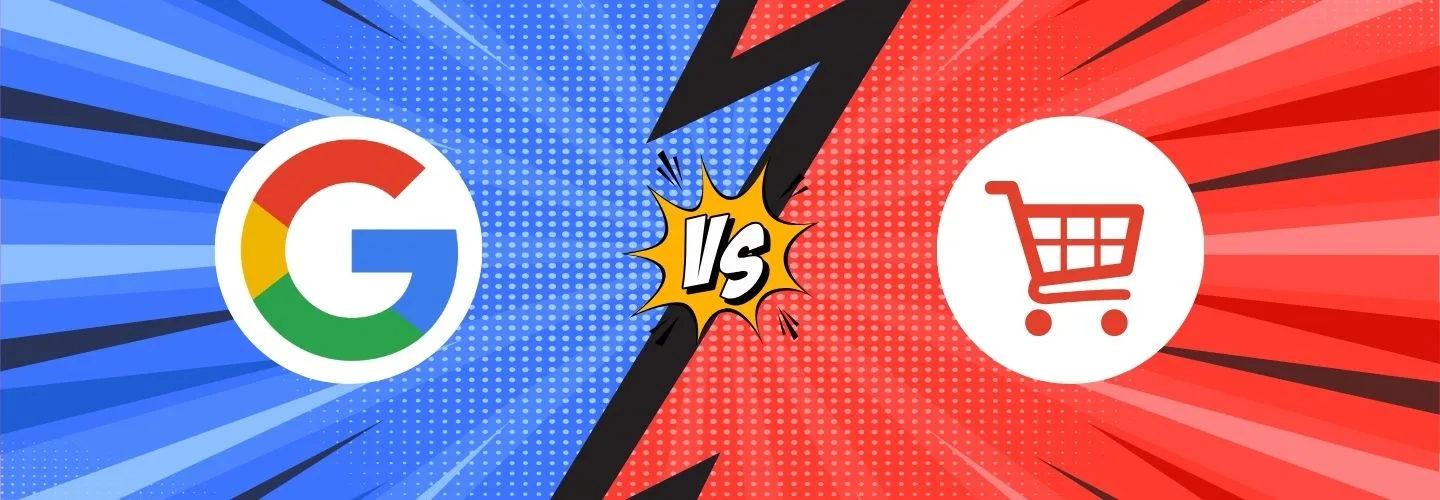Why You Need an SEO-Experienced Person on Your Team: Building Toward Lasting Growth

In 2025, “AI marketing” feels like the answer to everything.
Every week, there’s a new tool promising faster content, cheaper visibility, and traffic on autopilot. But here’s the uncomfortable truth: Google still decides who’s seen, and AI-driven platforms are deciding what’s shown.
Search isn’t what it was two years ago. With Google’s SGE (Search Generative Experience), ChatGPT’s custom GPTs, and Perplexity’s AI summaries, visibility isn’t just about “ranking” anymore; it’s about being referenced and trusted by systems that understand meaning, not just keywords.
So if your team doesn’t have at least one person who understands SEO deeply, not as a checklist, but as a discipline, you are flying blind in a search world that’s rewriting itself in real time.
TL;DR
Without an SEO Expert, You are Invisible to the Future of Search
SEO isn’t about “keywords” anymore; it’s about visibility across AI-driven ecosystems.
If your marketing strategy isn’t led or guided by someone who understands how Google, ChatGPT, and other AI search engines surface information, you are optimizing for a world that no longer exists.
Here’s why that’s dangerous:
- You will create content that humans love but algorithms can’t interpret.
- Your site may appear in zero AI summaries, the new front page of search.
- You will lose organic visibility while paying more for ads that weren’t needed.
An SEO professional keeps your brand relevant where it matters most, across the shifting intersections of search, AI, and user intent.
The Myth of “Everyone Knows a Bit of SEO”, and Why It’s Risky
We hear this a lot:
“Oh, our writer handles SEO.”
“Our dev sets meta tags.”
“We rely on AI tools for that part.”
That’s like saying, “We don’t need a driver, the car has cruise control.” It might get you moving… until something hits the road.
SEO today is a multi-dimensional skill set that blends data science, content strategy, behavioral psychology, and AI literacy.
With Google’s AI Overviews reshaping visibility and ChatGPT pulling source data into conversational summaries, only someone who understands how information is indexed, understood, and linked can ensure your brand doesn’t get buried.
On Reddit’s r/SEO, a user recently said:
“One person handling ALL of that is a big ask … draft a strategy that includes Local, Onsite, Link building, Content.”
Exactly.
Because without that “one person” connecting all the dots, your marketing efforts end up looking like a puzzle with pieces from three different boxes.
When You Skip SEO Expertise, You Don’t Just Lose Rankings, You Lose Direction
Without a dedicated SEO expert, you end up doing what many founders unknowingly do:
“Random acts of marketing.”
Here’s what that looks like:
- Publishing content no one searches for.
- Creating blogs that sound good but don’t match user intent.
- Ignoring structured data or site health until something breaks.
- Relying entirely on ads to “fill the traffic gap.”
- Watching analytics drop and having no clue why.
On a recent r/DigitalMarketing thread, one marketer put it bluntly:
“SEO still works, but you have gotta play a different game now. Topical links from real websites move the needle more than ever.”
That “different game” requires a strategist, not just a writer, not just a developer, who can see how AI and human search overlap.
One SEO Expert = Your Team’s Compass in the Age of AI Search
An SEO expert doesn’t just “optimize content.” They connect every moving part of your marketing, from content to UX to analytics, into a strategy that scales intelligently.
1. Strategic Keyword & Intent Mapping
Modern SEO isn’t just about ranking, it’s about contextual authority.
An SEO expert identifies not only what users search for, but how AI systems interpret it.
They help answer questions like:
- What intent signals does Google or ChatGPT associate with this query?
- How do we position our brand to appear in AI-driven search summaries?
- Which topics build long-term visibility and authority?
2. Fixing What’s Broken Before It Hurts
Technical SEO is still the backbone.
An experienced SEO can spot and fix:
- Crawl errors and index issues
- Schema markup mistakes
- Page speed and UX signals that now directly feed AI ranking models
Skipping this is like ignoring low tire pressure; it feels fine until you are on the highway.
3. Smarter, AI-Aligned Content Planning
A great SEO bridges creativity and data. They don’t fight AI; they train content to work with it.
That means:
- Structuring articles for both human readability and AI snippet extraction
- Optimizing headings and context for LLM understanding
- Using semantic markup so your brand gets cited in AI Overviews and Perplexity responses
Think of it like writing for two audiences: people and machines that summarize for people.
4. Saving Thousands in Ad Spend
As organic visibility becomes harder to earn, ad costs keep climbing. But here’s the twist: the smartest brands aren’t spending more; they are optimizing better.
A single, well-optimized piece of content, the kind that ranks consistently or gets cited in AI search results, can outperform months of paid campaigns. And it keeps driving traffic long after the ad budget runs dry.
Think about it: nearly 60% of top-ranking pages are over three years old, yet they still bring in consistent traffic. SEO remains the quiet powerhouse behind over 57% of global website visits, and it doesn’t charge you per click.
You don’t need ten marketers running ads on every channel.
You need one sharp SEO strategist pointing everyone in the right direction.
The 20-Year Lesson: Tools Can’t Replace Experience
Every new SEO era promises shortcuts. From keyword density tools to AI-generated clusters, they all claim to “replace expertise.”
But the truth remains: Tools automate tasks; experts interpret results.
After two decades in digital marketing, one pattern never changes: algorithm updates reward depth, clarity, and trust.
And those aren’t things you can automate.
Experience teaches patience. It teaches when not to chase trends and when to double down on what works.
And as AI reshapes discovery, that judgment becomes priceless.
What to Look for in Your SEO Hire
When you hire (or train) your in-house SEO, don’t settle for someone who just “knows the basics.” Look for:
- A strategic thinker who connects SEO to ROI, not just rankings.
- A communicator who can bridge developers, designers, and writers.
- A curious mind that studies AI search updates, not just Google ones.
- Someone who’s been through algorithm storms and still smiles.
Bonus: if they have worked in both B2B and SaaS, they will understand your sales cycles and growth metrics.
The Shift Founders Need to Make
Founders often see SEO as a cost center. In 2025, it’s a visibility engine.
As AI-driven search becomes the discovery layer, SEO isn’t just about “ranking higher”; it’s about training algorithms to recognize your brand as authoritative, reliable, and relevant.
That requires consistency, structure, and someone steering the ship with both data and instinct.
With an SEO expert on your team, you will:
- Anticipate algorithm and AI changes instead of reacting to them.
- Create discoverable content, not just published.
- Build a digital reputation that outlasts your ad budget.
Looking Ahead: SEO Isn’t Dead, It’s Evolving Into AI Optimization
SEO isn’t slowing down; it’s shifting gears.
In 2025 and beyond, visibility will depend on how well your brand’s data, content, and credibility interact with AI search layers.
So ask yourself:
“Do we have someone on our team who truly understands how search and AI connect, or are we just hoping the algorithm will notice us?”
If it’s the latter, it’s time for a rethink.
At Thrillax, we have spent 20 years helping SaaS and B2B brands evolve through every search revolution, from early Google updates to today’s AI-driven discovery era. If you are ready to future-proof your visibility and build smarter, lasting growth, we would love to help you figure out your next move.
And if you have got your own take on how AI is reshaping SEO, drop it on LinkedIn. We would love to hear your perspective.



